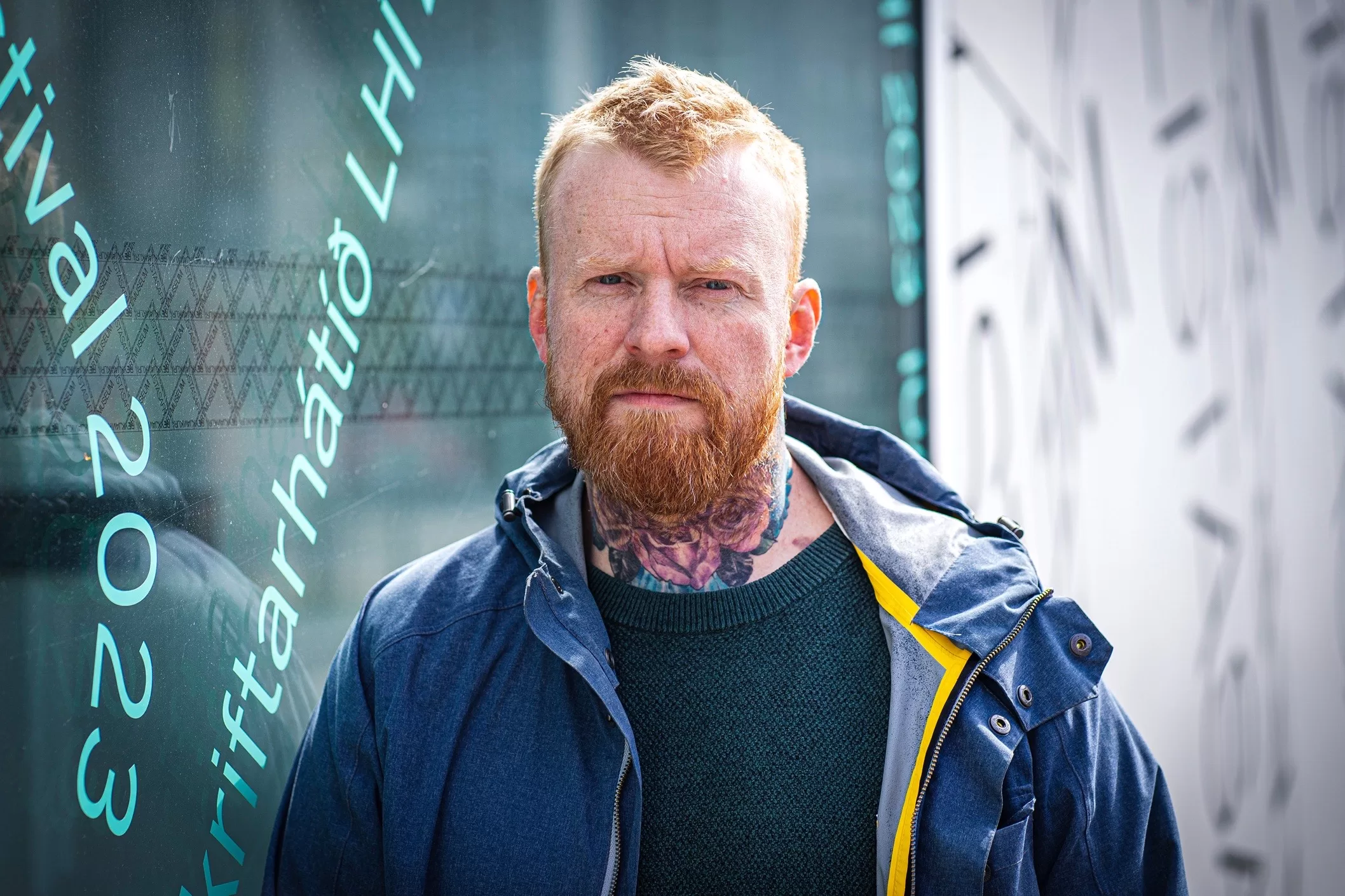We are writing to bring attention to the case of the visual and performance artist and master’s student, ODEE, who is being sued for damages (including legal fees likely upwards of £500,000) in the High Court in London on the 25 and 26 September 2024. The lawsuit has been brought against ODEE by Samherji, one of Europe’s largest fishing companies based in Iceland, for the unauthorised use of its website and brand.
ODEE’s art piece centres around the concept of corporate responsibility through a fictional apology – via a website he created and a mural at the Reykjavík Art Gallery – for the alleged corruption committed by Samherji to secure fishing quotas in Namibia revealed in 2019 by the whistleblower, Jóhannes Stefansson, and which quickly became known as the #Fishrot Scandal.
Samherji has exercised its rights to challenge ODEE by issuing an interim injunction to require him to take down the website with the spoof apology, and he did so in May 2023. The court will need to decide whether to vary or discharge the injunction, and whether the artist should be liable for Samerjhi’s legal costs and alleged damages. However, the question remains as to whether such action is proportionate, or an attempt to silence those who speak out against corruption.
The alleged corruption is currently the focus of a high-profile trial in Namibia in which 10 suspects have been charged including the former Ministers of Justice and Fisheries – the majority of whom have been held in custody since 2019, and who may face even longer jail terms if convicted. Investigations into Samherji’s activities are continuing in Iceland.
Ensuring that whistleblowers can disclose information about wrongdoing in the public interest is vital for democratic accountability – so that proper investigations can occur, and those responsible are held to account. Protecting whistleblowers safeguards the public’s right to know, an essential element of the right to freedom of expression.
Artistic freedom of expression – through film, theatre, literature, painting and conceptual art, among many other media – is also vital to a healthy democracy and to public discourse and the development of ideas. Artistic expression allows individuals, communities and societies to consider and examine moral and ethical choices, as well as how power works and affects us, whether it is political, social or economic.
Freedom of expression links whistleblowers and artists – individuals must be protected from the powerful who wish to stop them speaking up. Jóhannes Stefansson and ODEE deserve our support. In today’s world, where we face existential challenges to protect our natural resources, environment and climate systems, we can ill afford to let these voices be silenced.
We, the undersigned, therefore, urge Samherji to drop its disproportionate case against the artist, ODEE.
SIGNED BY:
African Centre for Media & Information Literacy (Nigeria)
Artistic Freedom Initiative (International)
Blueprint for Free Speech (International)
Daphne Caruana Galizia Foundation (Malta)
Disruption Network Lab e.V. (Germany)
Centre for Free Expression (Canada)
Civil Liberties Union for Europe
Citizens Network Watchdog Poland
Climate Whistleblowers (France)
GlobaLeaks (Italy)
Government Accountability Project (USA)
Index on Censorship (UK)
Institute for Public Policy Research (Namibia)
Justice and Environment (EU)
Oživení (Czech Republic)
Pištaljka (Serbia)
Platform to Protect Whistleblowers in Africa (PPLAAF)
Pro Publico (International)
Protect (UK)
Shadow World Investigations (UK)
Spotlight on Corruption (UK)
The Whistleblower House (South Africa)
Transparency International Ireland
Transparency International Italy
Whistleblowers-Netzwerk e.V. (Germany)
Whistleblower Chile
Whistleblowing International Network
* Protect is a registered Charity in England and Wales No.1025557
** WIN is a Scottish Charitable Incorporated Organisation No. SC048595






